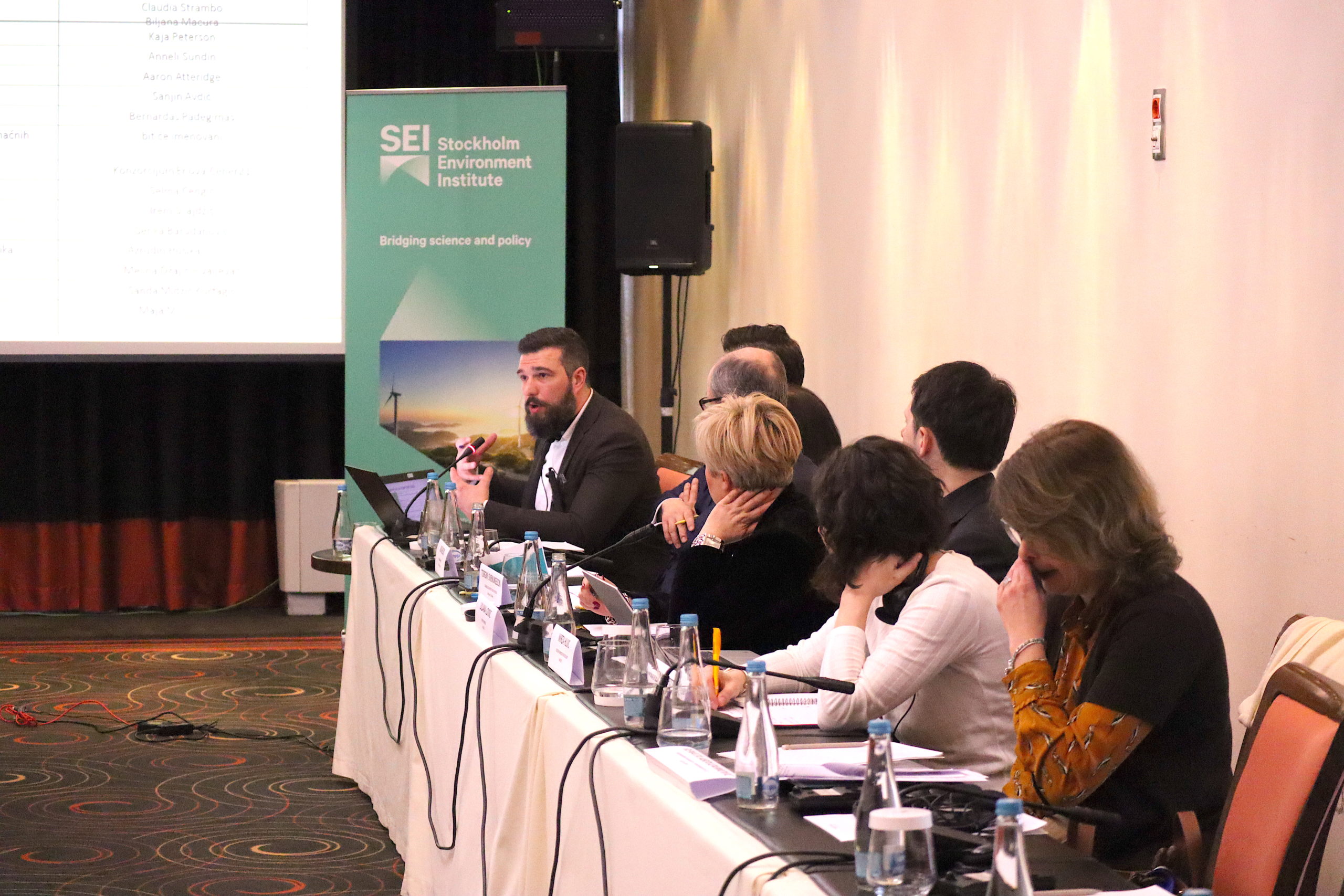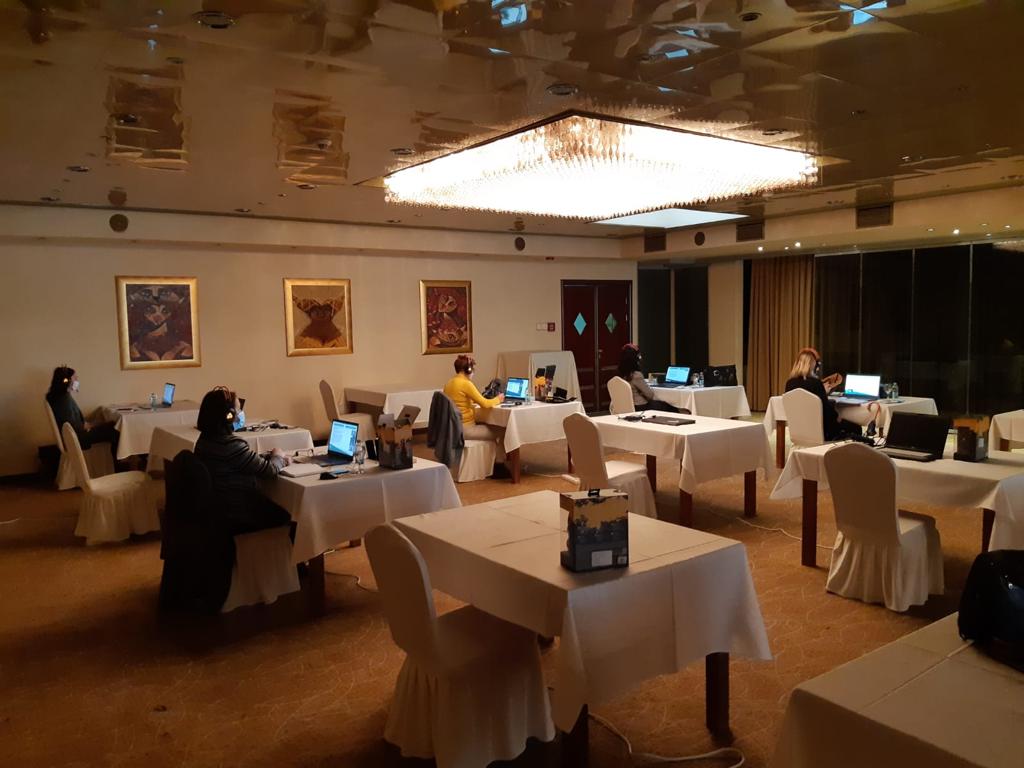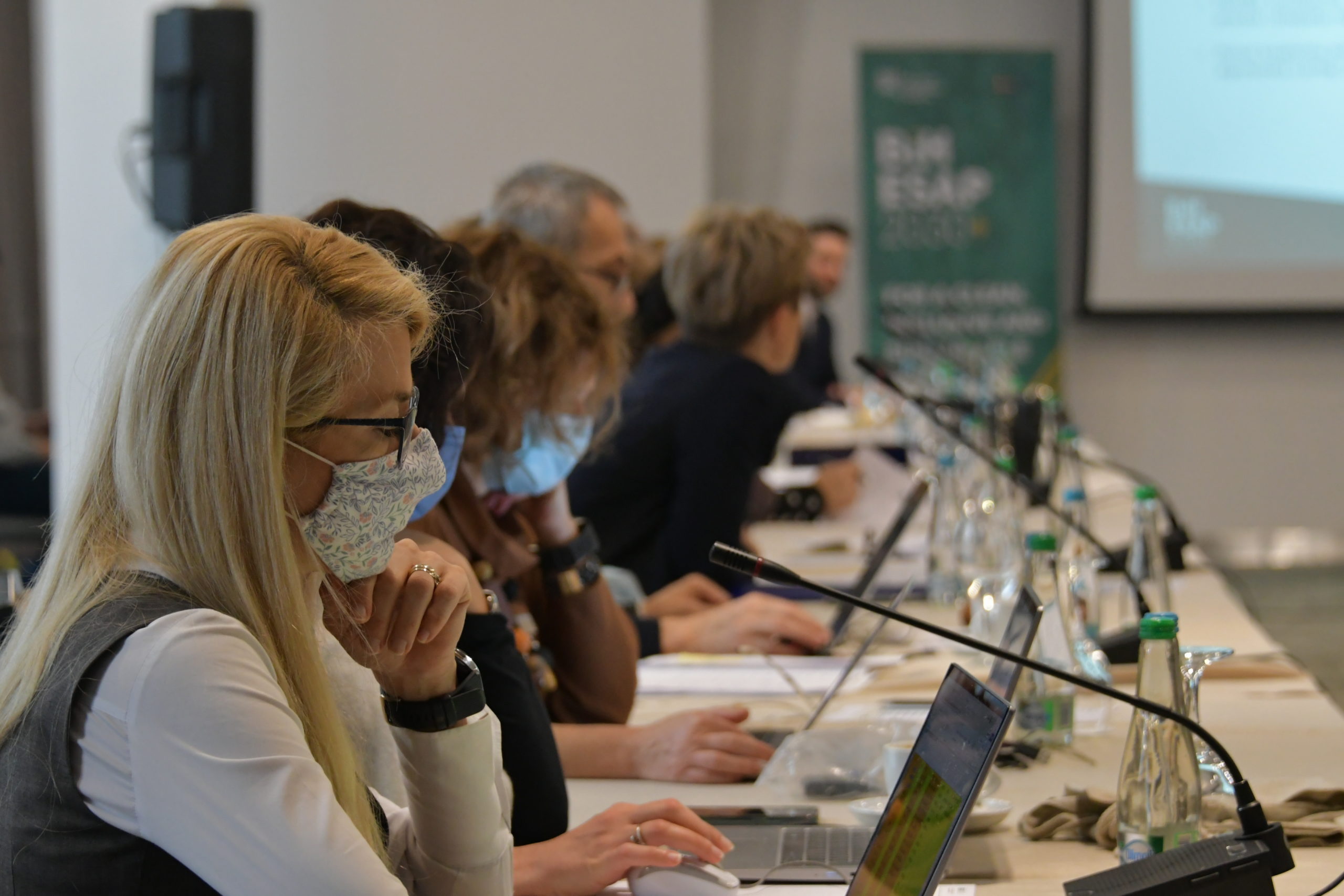Bosnia and Herzegovina is famous for its natural beauties, thick forests, blue rivers and green lakes. A traveler can hardly pass any area of the country without being exposed to a breath-taking view. At the same time, however, Bosnia and Herzegovina is becoming notorious for the poor treatment of the environment. The cities in BiH have ranked high on the global black lists of the most polluted places, rivers choke on waste, while indiscriminate and illegal logging ravages the thick forests day-to-day. The complex structure of the governance hampers efforts to protect the environment due to colliding interests of representatives of the local, entity, and national institutions.
ESAP BiH ESAP 2030+ a critical tool to improve the environmental performance
To address the problem, the BiH authorities approached the Embassy of Sweden to BiH and asked for help in developing an environmental strategy and action plan for the whole country, for all the four levels of government. Both the national authorities, and the authorities of the entities, the Federation of BiH and Republika Srpska, as well as Brčko District, requested the help, which shows the gravity of the problem when it comes to environmental protection in the country.

This is how the project BiH ESAP 2030+ was launched. This project, managed by the Stockholm Environment Institute (SEI), will facilitate the development of the first-ever national environment strategy in BiH. This is why an Al Jazeera journalist interviewed the Project Manager, Mr. Bernardas Padegimas.
According to him, BiH ESAP 2030+ will be a critical tool for the relevant authorities in BiH to improve the environment, as well as the health and wellbeing of the country’s population. SEI is an international independent research organization, which is why the Swedish Embassy approached and asked this institute to provide technical support in the preparation of this Strategy and Action Plan.
SEI connects science and decision-making to develop solutions for a sustainable future for all. The work of this institute spans climate, water, air and land-use issues, governance, the economy, gender and health. Stakeholder involvement is at the heart of our efforts to build capacity, strengthen institutions and equip partners for a long-term change, Mr. Padegimas says.
Mr. Padegimas said that the final version of ESAP BiH 2030+ would be available in early 2022, and subsequently submitted for formal adoption procedures in BiH. Its implementation should start immediately after the adoption. He notes that some parts of the Strategy are already being implemented, because the Strategy also builds on and incorporates various planning documents which are in effect across BiH, addressing different sectors.
BiH ESAP 2030+ as a path to EU integration
Notwithstanding the eagerness to prepare and apply such a comprehensive strategy, the participants are aware of multiple challenges they face, primarily the administrative and governance complexity of BiH, which further complicates this demanding task. The good news is, Mr. Padegimas says, that all the jurisdictions in BiH made a clear commitment and showed strong support to the project, although he is aware that the administrative system with the four levels of government (national, the entities: FBiH and RS, and the Brčko District) adds to the whole difficult process of the development, adoption and implementation of the Strategy and Action Plan.

The citizens of this country got used to their elective officials giving a whole lot of promises with very little results, and this particularly applies to environmental protection. This area is mainly obscure for the BiH politicians, and their intention to implement the agreed strategies is taken with a grain of salt.
The Project Manager of the ESAP BiH 2030+ says that they have still seen a great deal of interest and commitment among the authorities.
“The complex structure among the jurisdictions is one of the main reasons for the previous sluggish development of the environmental protection in BiH. However, BiH ESAP was initiated by the request of the authorities to the Swedish Embassy to support its preparation. BiH will comply with the recommendations and measures defined in the Strategy because they were defined by multiple stakeholders, and all the participants feel ownership over the Strategy. The role of SEI has been solely to provide support and expertise”, Padegimas says.
It is important to highlight, he continues, that ESAP BiH will provide a myriad of environmental, economic and social benefits, and at the same time a roadmap for much-needed local and international funding. Finally, given that BiH ESAP will be subject to the full adoption procedure, the documents will become official government documents, the Project Manager says.
A failure to implement the measures defined in the Environmental Strategy and Action Plan would primarily jeopardize the wellbeing of the citizens of BiH, Mr. Padegimas says.
“This would encourage even more young people to leave the country, and further jeopardize kids who suffer the consequences of air pollution on a daily basis.” The BiH authorities, at least the bulk of them, have declared their commitment to EU integration, and the way in which they address the implementation of this Strategy could have consequences on the integration of BiH with the EU family.
The European Union accession is a long and complex process, Mr. Padegimas says. He further states that ”the adoption of BiH ESAP is a powerful demonstration of the continued commitment of BiH to become a Member State, and that it also may help BiH to access certain funding flows of EU.”
Benefits of digital technologies in the pandemic era
In addition to the complex government structure in BiH, the Coronavirus pandemic that emerged in the process of the strategy development has been another obstacle, Mr. Padegimas says. The project started before the outbreak of COVID 19, and it was initially designed for all in-person meetings.
“The project adopted a participatory approach, which means that all the stakeholders could engage at the very beginning. And indeed, immediately upon its inception, the project attracted many different stakeholders in BiH. Let’s just mention some types of the stakeholders such as 97 different public institutions, 37 private companies, 27 municipalities, and 13 civil society organizations, which are involved in the process. They participate through our Working Groups which meet on a regular basis”, he said.

Organizing the work and participation of such a large number of stakeholders at the time of the pandemic with restricted movement has been a huge challenge.
“On the one hand, this approach was highly inclusive and provided everyone with a voice and opportunity to use their knowledge and get a better understanding of their concerns. However, on the other hand, this has become a complex logistic exercise, especially with the COVID-19 circumstances. When we went online holding all the meetings solely in this mode, we discovered that technical equipment was a major issue among some stakeholders, which prevented them from joining the meetings. The project adapted quickly and hired large conference rooms, including PCs and supporting equipment, which ensured technical preconditions for all the stakeholders to join the meetings of the Working Groups”, the Project Manager of BiH ESAP says.
Raising public awareness is crucial
Nevertheless, all the documents and ideas are not good enough if the citizens are not sufficiently aware of the need to protect the environment, Mr. Padegimas particularly stressed.

“Some say that where the public is aware and demands changes, politicians have no choice but to adjust and create changes the citizens desire. At the end of the day, it is about humans. It is about human health, their jobs, and the possibility that future generations could enjoy a healthy nature and breath fresh air in BiH.
This is why the human factor is critical for the success of ESAP in BiH, which is built around the possibility for everyone to work together and create together the future of BiH, he adds.
The stakeholders have a possibility to raise their concerns and provide their inputs at the meetings of the Working Groups, through public consultation processes, strategic environmental assessment, and adoption procedures. Padegimas adds that he hopes this will create the feeling of ownership over the project among the citizens and give rise to commitment for further support to the implementation of BiH ESAP 2030+.
Sweden is a country well-known for its tremendous efforts in the preservation of the environment, and this gives the BiH authorities an opportunity to have a first-hand insight into possibilities of positive impacts on the environment. The Swedish environmental policy largely focuses on climate neutrality and the reduction of emissions of harmful gases and hazardous toxins. It is codified that the country should achieve the target of net-zero GHG emission by 2045 and after this a negative emission. These climate ambitions also affect the private sector, in industries such as steel production, petrochemical industry, cement works, which make huge efforts to reduce and finally stop emitting harmful gases.
“We see the climate neutrality as an opportunity for investments, new jobs, modernization and improvement of living standards based on the foundations of a more sustainable society”, Mr. Padegimas says. He continues that there have been many developments in Sweden from which other countries can learn and draw inspiration, but he notes that they strongly believe that Bosnia and Herzegovina can learn from and cooperate with its neighbors in the Balkans (especially those who already are EU member states), given that they cope with similar circumstances as the stakeholders in BiH, and face similar types of environmental problems and have similar cultures.
Article: The courtesy of Al Jazeera Balkans







